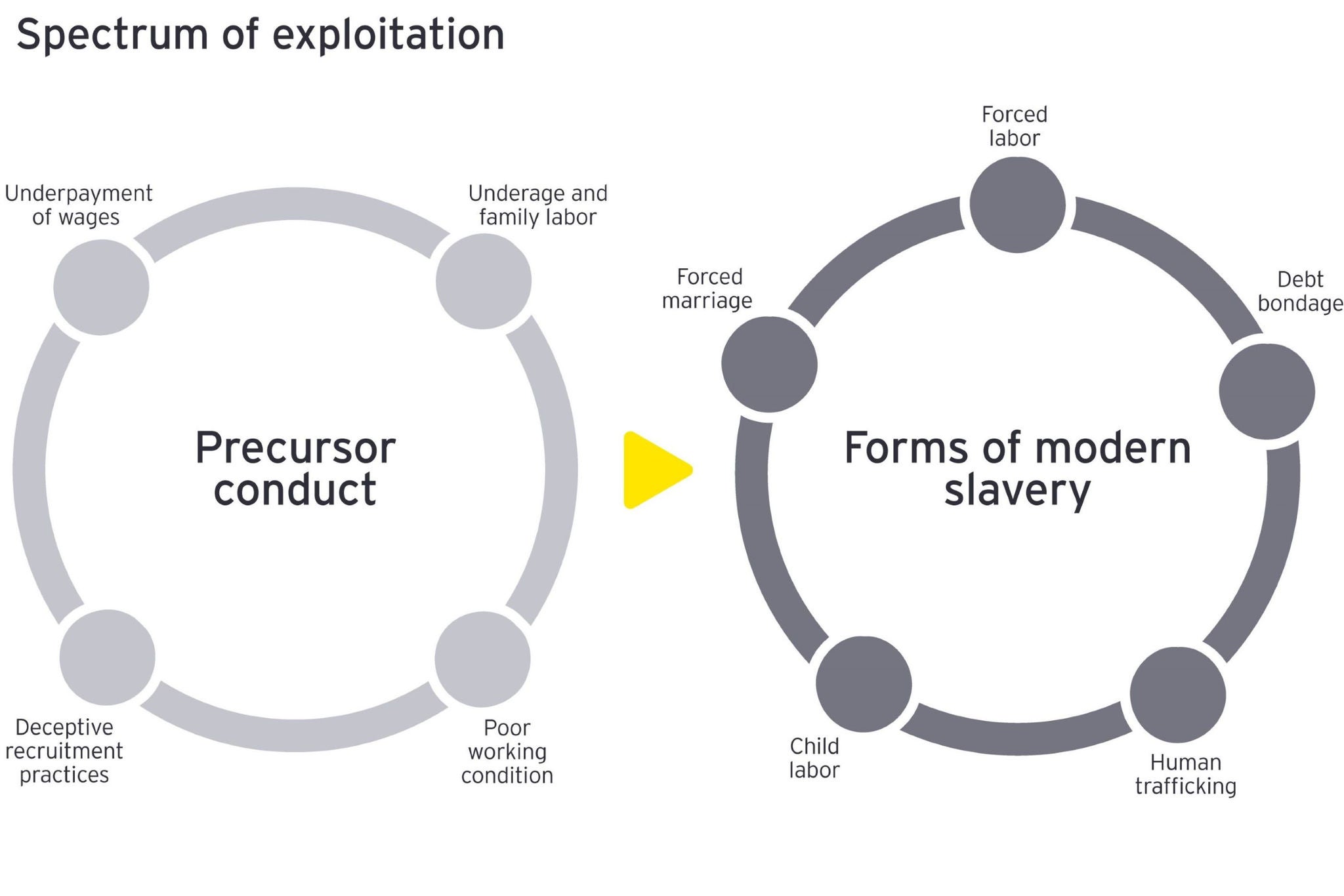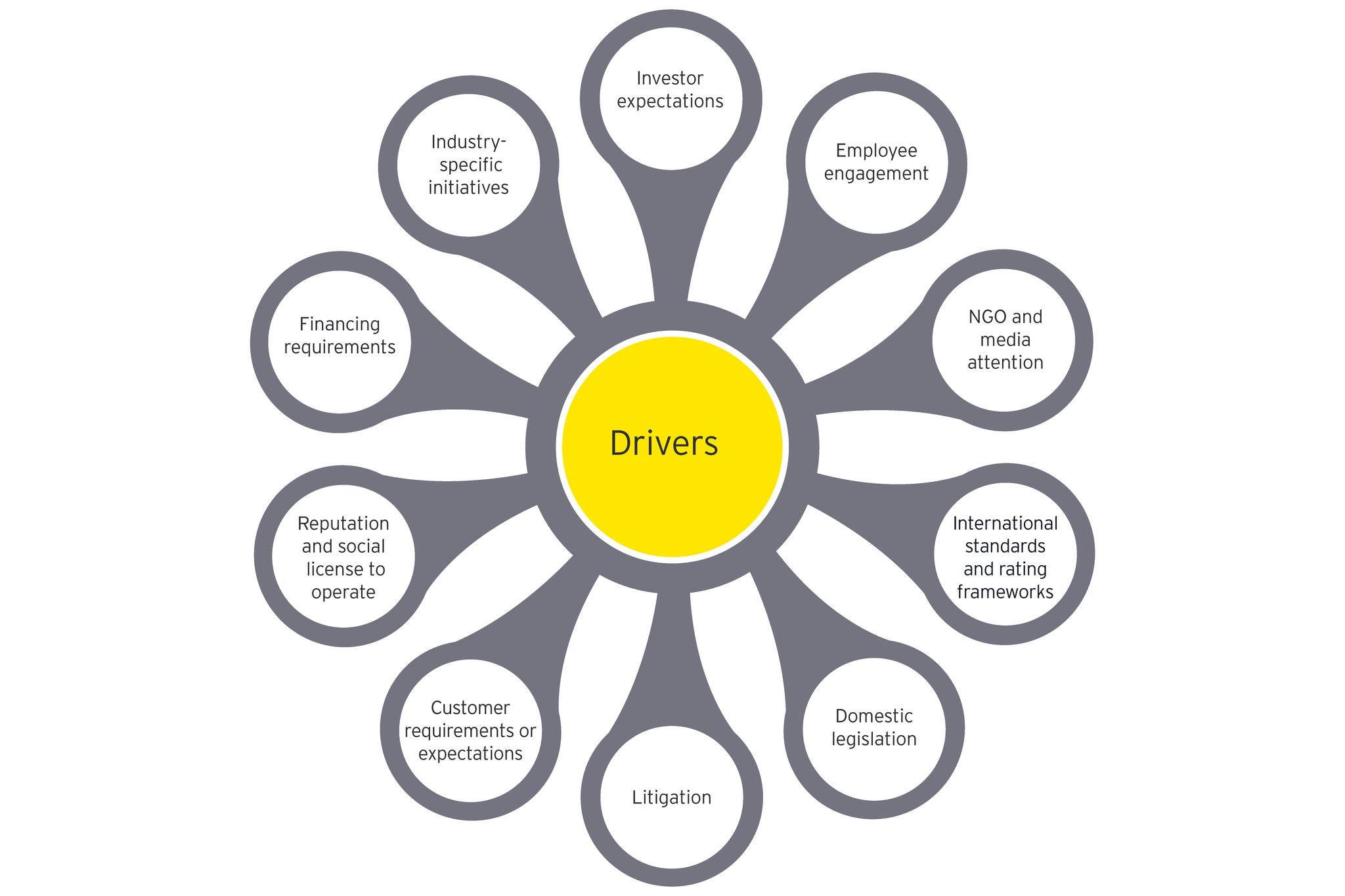EY refers to the global organization, and may refer to one or more, of the member firms of Ernst & Young Global Limited, each of which is a separate legal entity. Ernst & Young Global Limited, a UK company limited by guarantee, does not provide services to clients.
How EY can Help
-
EY teams can help address ESG and sustainability issues, investor concerns and improve ESG performance. Find out how.
Read more
A focus on due diligence
Historically, many businesses have limited their supply chain and human rights management approach to a requirement that their suppliers provide a current certification; an audit report; a signed commitment to the buyers’ and retailers’ “supplier code of conduct”; or even merely referencing compliance with local laws in the contract terms and conditions. More recently, there is growing acceptance that this approach has done little to improve standards in supply chains, and has often been ineffective at driving real change. Further, there is a tendency of companies to focus their efforts on their first-tier suppliers, whereas research is showing the greatest modern slavery risks are present in outsourced sub-tiers of supply chains. There is, therefore, work to be done for businesses to revisit what controls are in place to manage the supply chain risks and to appropriately design and resource the related due diligence processes.
Undertaking these tasks should help organizations to comply with current and emerging global legislation, as well as meet more demanding and constantly shifting customer, investor and community expectations. Companies that recognize the commercial opportunity and take a proactive and strategic approach could achieve benefits too. Specifically, they may profit by offering low-risk, transparent supply chains or certified ethical products to meet customer demands. They are also likely to generate other rewards, such as avoiding disruption; building strong, productive supplier relationships; employee engagement; customer loyalty; and investor and regulator confidence. But perhaps most importantly, they will contribute to finally reducing modern slavery in our global supply chains
EY Climate Change and Sustainability Services (CCaSS) teams can support organizations’ management of their human rights risks and the livelihoods of the workforce in their value chain.
Certain services and tools may be restricted for EY audit clients and their affiliates to comply with applicable independence standards. Please ask your EY contact for further information.







